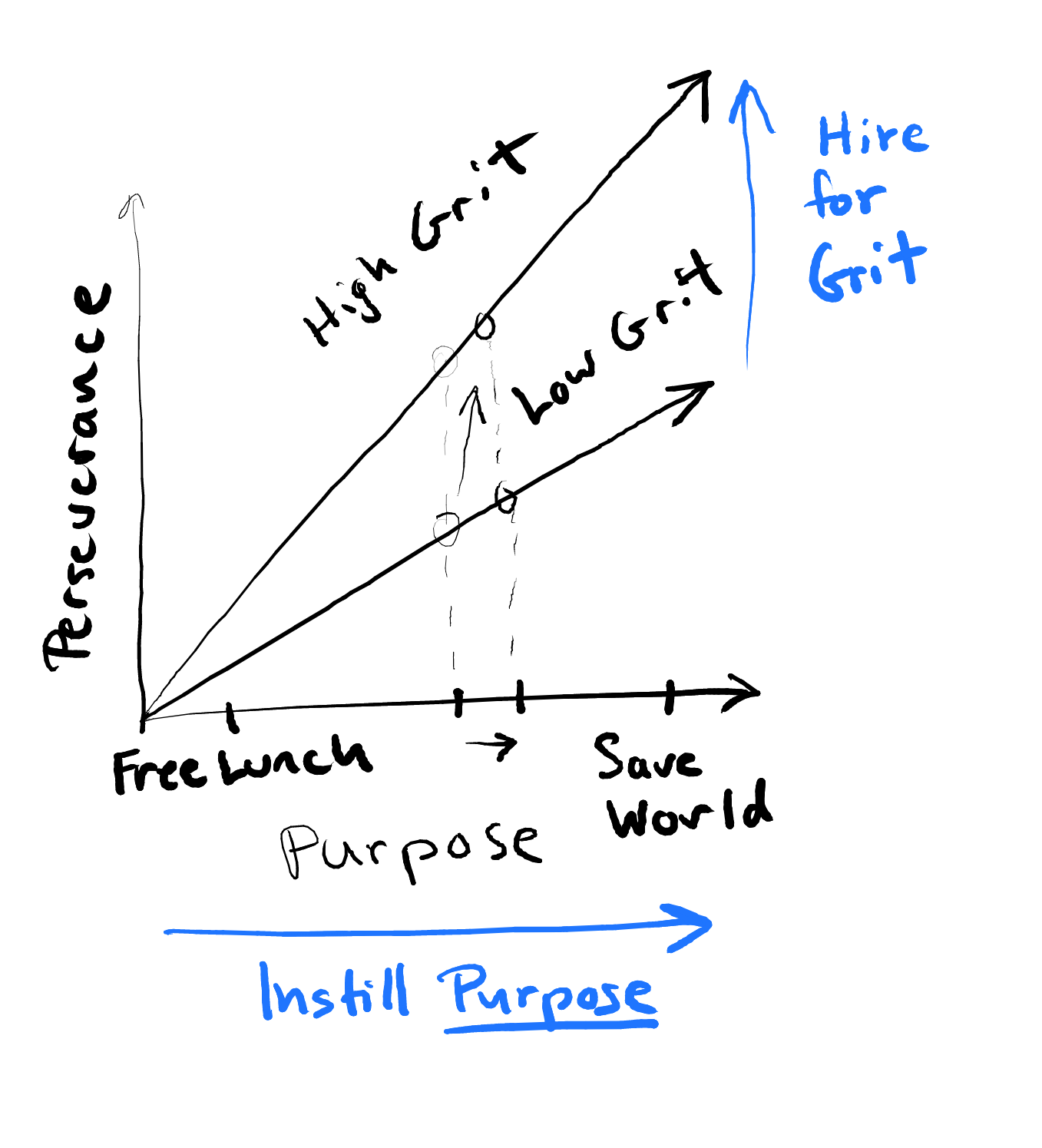I have a bad habit of reading good books and not documenting the takeaways, so:
Drive, by Daniel H. Pink, claims that paying per task, or per hour, is a relic of the industrial age, and actually results in lower job satisfaction and worse performance for tasks that ambiguous tasks that require creativity. Instead, pay enough to make pay not an issue (this felt handwavy enough to remind me that book authors typically do not have the responsibility of hiring and retaining talent!)
The author brings up 3 components of productivity and happiness.
- Autonomy: A feeling of ownership and independance. Feeling like you have power over how you do your task, when you do it, and who you do it with. Let good people choose who they want to work with. As Scott Adams says, “Nothing is more important to my success than controlling my own schedule”
- Mastery: Tasks are achievable but hard enough to be interesting. Goals are clear.
- Purpose: Feeling like what you do matters. Purpose drives you to keep going when inevitably, portions of your work score low on Autonomy or Mastery. A good quote: “Being a professional is pursuing what you love, on the days you don’t want to do it”
One trait related to Purpose, that is essential for high-performers in this new environment is Grit, the perseverance and passion for long-term goals in the face of adversity. I think of most successful startup engineers as having a high degree of grit, and enjoyed the following quote:
A startup engineer must be all things – he (or she) is a full time software developer and a part-time product manager / customer support guru / internal systems maven.
- Mike Cannon-Brookes, founder of Atlassian ( link )
My mental model for Grit and Purpose is that they both increase perseverance, which I’ll defin as “one’s drive to accomplish a task even in the face of adversity”. An individual with high grit will work very hard even on mundane tasks. Engendering Purpose increases perseverance, even holding Grit constant:
Perseverance as a function of Purpose and Grit

Recommendations from the book:
- Write down what tasks help you achieve a state of flow: For me, writing, running, coding, drawing, bicycling. Try to do one flow activity per day for mental health
- Make a motivational poster
- Give yourself weekly performance reviews as it relates to your objectives
Future book recommendations:
- Team of Rivals
- Once a Runner